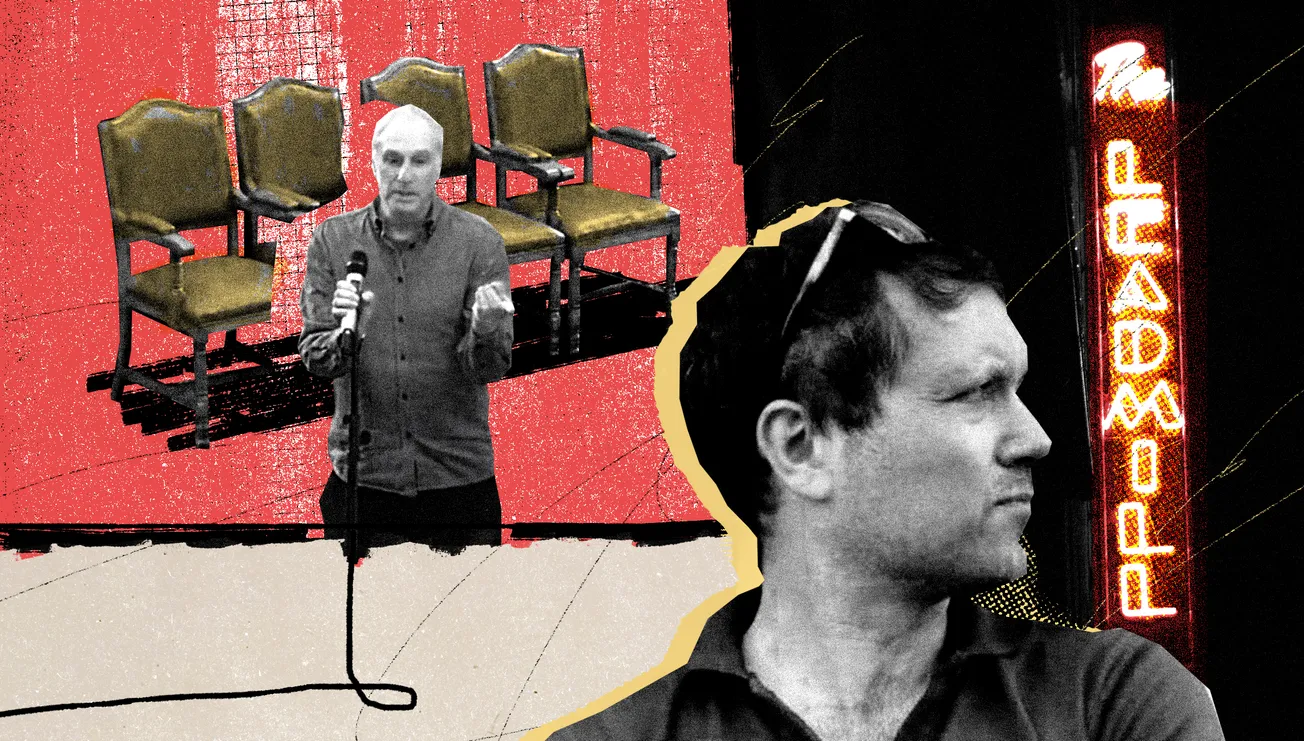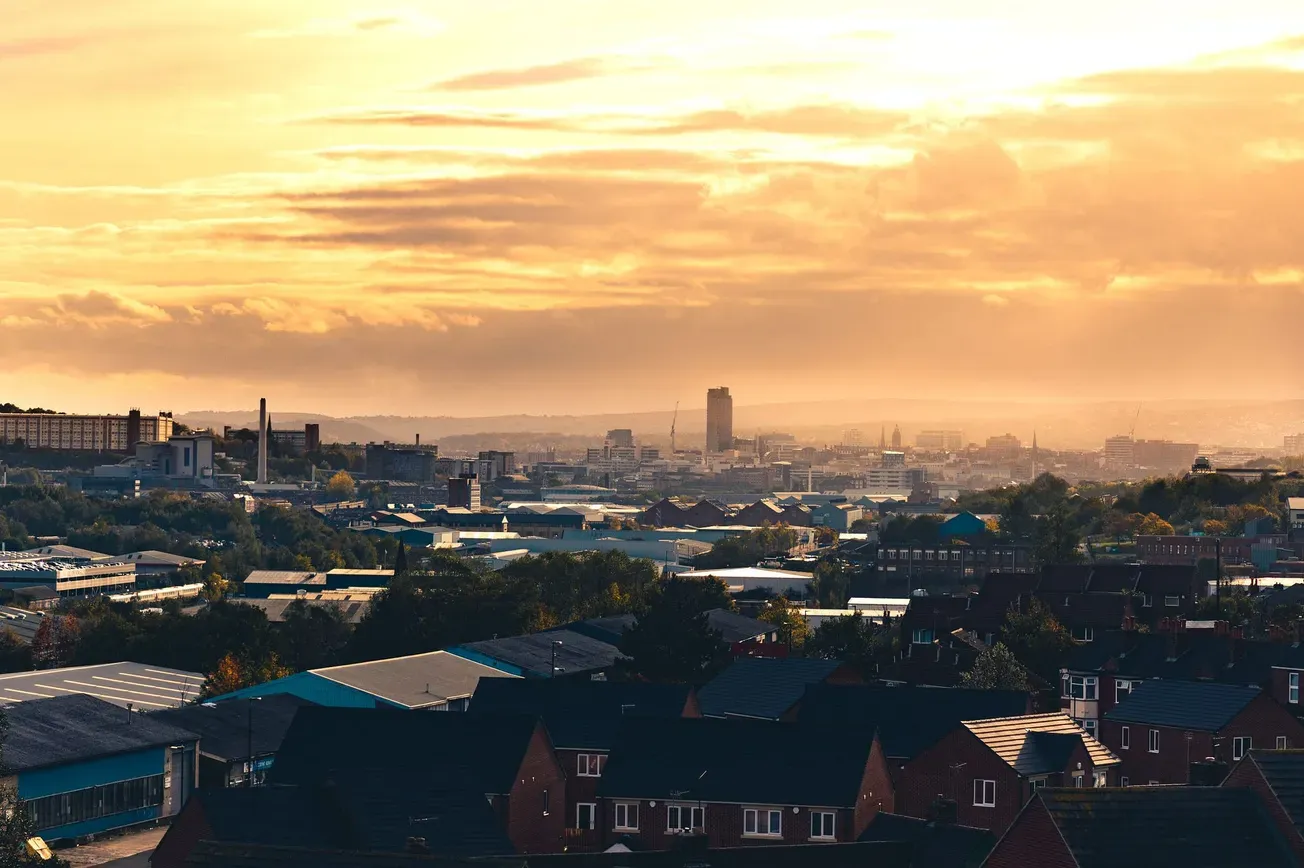Good afternoon — and welcome to The Tribune’s local elections special.
It was a late one at EISS in Attercliffe for Sheffield’s local election results on Thursday night, with the final announcements not being completed until almost 5am. Nevertheless, The Tribune was there until the bitter end, and after catching up on some much-needed sleep, we’ve put together this bumper pack of analysis and reaction for you.
Below we’ve got some analysis from our elections expert Jason Leman, followed by five of our key takeaways and some reaction from the main party leaders. If you’re someone who’s not convinced that their vote makes much of a difference, the results — once again! — suggest that every vote counts, with some results being decided on a knife edge.

Sheffield voted — what happened?
In the 2022 Sheffield City Council elections, the national mood helped to tilt many finely-tuned local battles. Across the city, the Labour vote went up by four percentage points, with their voters keen to get out. In the meantime, over ten thousand Conservative voters in Sheffield stayed at home, seemingly dismayed at how things have played out since the heady heights of 2021. The collapse in Conservative fortunes meant that they failed to win a single seat, with David Chinchen unable to join his son Lewis in the council chamber, losing by 151 votes to Labour’s Janet Ridler. Over in East Ecclesfield, a three-way tie in 2021 turned into a fairly comfortable win for Labour, with Conservative voters staying at home in droves and the Lib Dems not managing to sustain a challenge.
The crumbling Conservative vote meant that Sheffield’s red wall was reinforced. This means that Labour still has 30 councillors in relatively safe seats, whilst the other parties are having much more of a battle to keep theirs.

The Lib Dems faced many close races on the night. The ward of Beighton was won by a Lib Dem whisker in 2021, with just 42 votes winning it from Labour. Julie Gledhill was trying to hold the last Labour seat in the ward but lost to the Lib Dems this time as well, with Kurtis Crossland doubling the winning margin to 84 votes. This made the one Lib Dem gain of the night, cancelled out by a Labour victory over the Lib Dem incumbent in Crookes and Crosspool.
In Ecclesall ward, Lib Dem leader Shaffaq Mohammed found his 2018 majority of 1,750 cut to 370 votes, with both Greens and Labour nibbling away at what used to be a safe Lib Dem seat. Similar movement is seen in other Lib Dem heartlands. Tory voters are staying at home while Labour seek to take the centre ground. With some wards also facing a squeeze from the Greens, this has left the Lib Dems in many precarious battles.

The Green Party edged forward after their surge of 2021, but were pushed hard by Labour across wards where they held seats. Labour won Walkley by just 98 votes, a seeming replay of their close win in 2019, the Greens not managing to replicate their success of last year. The real shock for the Greens was a loss in Nether Edge & Sharrow, where Green environmental campaigner Graham Wroe lost out to Labour community campaigner Nighat Basharat.
Having held all three councillors in the ward, the Greens had their 900 vote majority in 2021 turned into a 500 vote loss. Elsewhere the Greens removed an incumbent Labour councillor in Hillsborough and gained another seat Gleadless Valley, with Labour unable to defend the wards. The Greens had few big majorities but were the only net winner on the night, moving to a total of 14 Green councillors. The Liberal Democrats are the largest opposition party on 29 councillors, with one Conservative and one independent also there. Labour have 39 councillors, but is now four short of an outright majority.

The political position of Sheffield City Council is unchanged from 2021. No Overall Control remains in place and the bargaining for what happens next will begin on Monday. This year’s results again showed how the political makeup of Sheffield is influenced by national issues. If Labour strengthen further nationally then both Lib Dems and Greens will find it challenging to keep their seats and the balance of power. However, the public opinion of any party can go down as well as up, and there is very little certain in politics as we look to the year ahead.
Jason Leman is currently reading for a PhD in governance in English local councils at the University of Sheffield and is a member of the Sheffield Green Party.
Five takeaways
1. Labour staunch the bleeding
Labour will be disappointed not to retake control of the council, but happy to have staunched the bleeding. Since 2015 they have lost 19 seats and last year alone lost eight. Last night they lost Beighton to the Lib Dems and Hillsborough and Gleadless Valley to the Greens. But elsewhere they picked up Crookes and Crosspool from the Lib Dems and Nether Edge and Sharrow from the Greens. Party leaders will be especially pleased they managed to hold off a strong Conservative challenge in Stocksbridge and Upper Don.

2. Strengthening the “Green wall”
After 2021’s stunning gains, the Greens are back to repeating the same pattern they’ve practised for the last 20 years: incremental progress. They are now on 14 seats, one up on their 2021 total, having won two from Labour while losing another. Their so-called “Green wall” of central Sheffield seats has been strengthened further with wins in Hillsborough (which now has two Green councillors) and Gleadless Valley (which now has three). Losing Nether Edge and Sharrow to Labour was their one disappointment on the night.
3. No overall control here to stay
The era of single-party dominance in Sheffield looks to be a thing of the past, with the continuing rise of the Greens meaning Labour and the Lib Dems will both struggle to achieve a majority. As The Tribune reported last month, the result will please pressure group It’s Our City! who last year won their campaign to change the way Sheffield is run. Campaigner Woll Newall welcomed the news on Twitter: “No overall control means that the parties will have to work together more, rather than one party dominating.”

4. Fine margins
As in 2021, lots of wards were incredibly close. New Labour councillor Tom Hunt fought off a very strong Green challenge in Walkley by just 98 votes while the Lib Dems won Beighton from Labour by 84 votes. Labour took Crookes and Crosspool from the Lib Dem by 195 votes while the Conservatives lost Stocksbridge and Upper Don by just 151 votes. These incredibly fine margins mean lots of wards in Sheffield are unpredictable and could change hands on very small changes in the vote.
5. South Yorkshire is Labour
The South Yorkshire Mayoralty was the single biggest test of electoral opinion in the country on Thursday with more than 250,000 people voting. As expected, Labour’s Oliver Coppard romped home, winning 71% of the vote in the second round (first round 43%). As in 2018, the Conservatives came second with 29% of the second round vote (first round 16%) while Simon Biltcliffe from the Yorkshire Party finished a very creditable third ahead of both the Greens and the Lib Dems with 13% of the vote.

Party leader reaction
Labour leader Councillor Terry Fox said it had been a mixed night for the party but with some positive signs of recovery in several wards: “We’re very disappointed to lose Councillor Josie Paszek who has been a very strong voice for Hillsborough ward,” he told The Tribune. “But overall winning in Nether Edge and Crookes and Crosspool shows that we are improving in a range of areas and that we are listening.” Asked about Labour suffering further losses to the Greens in former strongholds such as Hillsborough and Gleadless Valley, Fox said it would take time to win those wards back. “We were never going to swing those seats straight away and we wouldn't expect that,” he added. “We have got to earn these votes.” At the Labour group AGM later on Friday, Fox and his deputy Julie Grocutt were re-elected as leader and deputy leader respectively.
Green leader Councillor Douglas Johnson told The Tribune he was happy with the results. “It’s still the Greens going forward, increasing our base and expanding outwards,” he said. “We think no overall control is the best thing for the city. What’s been really good since the May 2021 election is that no overall control has forced the parties to work together. It’s been quite difficult at times but the measure of success is that it has held together. We didn’t know it would work but with a lot of compromise all round it did. What’s interesting as we go into the committee system is that all councillors will have to play a part in decision making so this time the Lib Dems won’t have the option of sitting on the sidelines.”
Lib Dem leader Shaffaq Mohammed rejected the idea they had been “sitting on the sidelines” during the last year and said they were looking forward to working with other parties under the new committee system. “We have been playing an active role in shaping the new committee system and holding the council to account,” he said. “I hope Douglas and the other parties will want a constructive working relationship with us going forward. In terms of results in the night, it was a bit of a mixed bag but we have got the play the hand the electorate has dealt us. We managed to get the third seat in Beighton but sadly lost a very experienced councillor in Mohammed Mahroof in Crookes and Crosspool.”

Comments
Sign in or become a Sheffield Tribune member to leave comments. To add your photo, click here to create a profile on Gravatar.







